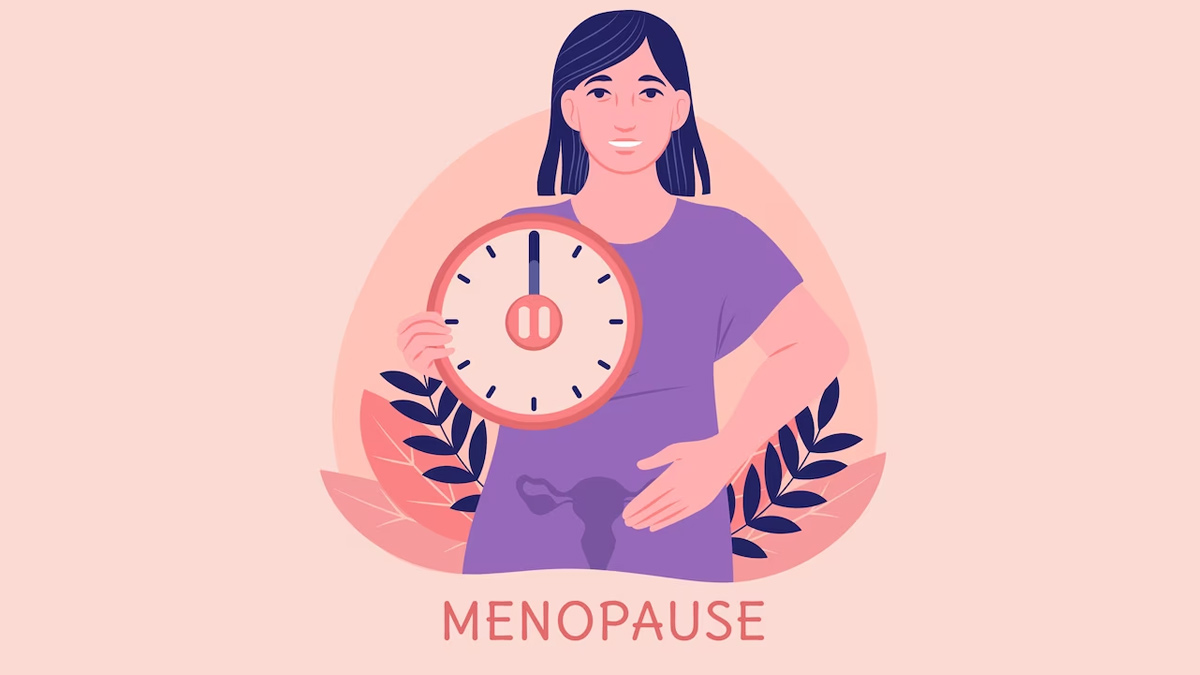Menopause is a natural biological process that marks the end of a woman’s reproductive years. While it is a normal stage of life, menopause can bring about a range of physical and emotional symptoms that may disrupt sleep, lower energy levels, and affect emotional health. However, there are many effective treatments available to manage these symptoms, from lifestyle adjustments to hormone therapy.
Understanding Menopause
Menopause is a transitional phase that occurs when a woman’s ovaries stop producing eggs and her menstrual cycles cease. It is diagnosed when a woman has not had a menstrual period for 12 consecutive months. Menopause typically occurs in women between the ages of 45 and 55, but it can happen earlier or later.
Symptoms of Menopause
:max_bytes(150000):strip_icc()/2322667-article-early-signs-of-menopause-5a4cfd9af1300a00373f55f9.png)
Menopause can bring about a variety of symptoms that vary in severity and duration for each individual. Some women may experience mild symptoms, while others may have more severe and prolonged ones. Here are some of the common symptoms associated with menopause:
-
Irregular Menstruation: As women approach menopause, their estrogen levels begin to decline, resulting in irregular menstrual cycles. Periods may become lighter or heavier and occur more or less frequently than usual.
-
Hot Flashes: Hot flashes are one of the most well-known symptoms of menopause. They cause a sudden sensation of heat, often accompanied by sweating and red patches on the skin. Hot flashes can be disruptive and may last for several years.
-
Sleep Disturbances: Menopause can disrupt sleep patterns, leading to insomnia or frequent waking during the night. Night sweats, which cause excessive sweating during sleep, can also contribute to sleep disturbances.
-
Vaginal Dryness and Discomfort: Many women experience vaginal dryness and discomfort during and after menopause. This can lead to itching, chafing, and discomfort during sexual intercourse. It is important to seek treatment for these symptoms to maintain sexual health and prevent infections.
-
Emotional Changes: Menopause can bring about emotional changes, such as mood swings, irritability, and feelings of sadness or anxiety. These emotional symptoms can be challenging to deal with, but there are strategies to manage them effectively.
-
Lower Fertility: As women approach menopause, their fertility declines significantly. It becomes increasingly difficult to conceive naturally during this time. If pregnancy is desired, it is important to explore alternative options such as assisted reproductive technologies.
Managing Menopause Symptoms

While menopause symptoms can be challenging to deal with, there are ways to manage them effectively. Here are some strategies to consider:
-
Lifestyle Adjustments: Making certain lifestyle adjustments can help alleviate menopause symptoms. Eating a balanced diet rich in fruits, vegetables, and whole grains can provide essential nutrients to support overall health. Avoiding foods that are high in fat, salt, and sugar can help manage weight gain and reduce the risk of heart disease.
-
Regular Exercise: Engaging in regular physical activity is beneficial for both physical and emotional well-being during menopause. Exercise can help manage weight, improve sleep quality, boost mood, and reduce the risk of chronic diseases. Incorporate activities such as yoga, walking, swimming, or dancing into your routine.
-
Hormone Therapy: Hormone therapy, also known as hormone replacement therapy (HRT), is a treatment option for menopausal symptoms. It involves taking estrogen alone or in combination with progesterone to alleviate symptoms such as hot flashes, night sweats, and vaginal dryness. However, it is essential to discuss the risks and benefits of hormone therapy with a healthcare provider before considering this option.
-
Alternative Therapies: Some women find relief from menopause symptoms through alternative therapies such as acupuncture, herbal remedies, or mindfulness techniques. While the effectiveness of these therapies may vary, they can be worth exploring under the guidance of a qualified practitioner.
-
Emotional Support: Menopause can be an emotionally challenging time for many women. Seeking emotional support from friends, family, or support groups can provide a safe space to share experiences, gain insights, and receive validation. Additionally, individual therapy or counseling can be beneficial in managing emotional symptoms.
-
Regular Health Screenings: Regular check-ups with a healthcare provider are crucial during and after menopause. These screenings can help identify and manage any potential health concerns, such as osteoporosis, cardiovascular disease, or breast cancer.
Remember, every woman’s experience with menopause is unique, and what works for one person may not work for another. It is important to listen to your body, seek guidance from healthcare professionals, and make informed decisions about managing your menopause journey.
Conclusion
:max_bytes(150000):strip_icc()/the-connection-between-menopause-and-depression-4767577_final_text-86d904d06c934451be3c8f75457fc6ef.png)
Menopause is a natural transition in a woman’s life that marks the end of her reproductive years. While it can bring about physical and emotional symptoms, there are various strategies to manage these symptoms effectively. By making lifestyle adjustments, seeking appropriate medical treatment, and finding emotional support, women can navigate through menopause with greater ease and improved quality of life. Remember, menopause is not the end, but rather a new beginning. Embrace this stage of life and prioritize self-care to thrive during and after menopause.
Additional Information:
-
It is important for women to have regular screenings for osteoporosis, cardiovascular disease, and breast cancer during and after menopause.
-
Alternative therapies such as acupuncture, herbal remedies, and mindfulness techniques may provide relief for some women experiencing menopause symptoms.
-
Hormone therapy (HRT) can be an effective treatment option for menopausal symptoms, but it is essential to discuss the risks and benefits with a healthcare provider before considering this option.
-
Emotional support from friends, family, or support groups can be invaluable in navigating the emotional challenges of menopause. Individual therapy or counseling can also be beneficial.
-
Regular exercise, including activities like yoga, walking, swimming, or dancing, can help manage menopause symptoms and improve overall well-being.
